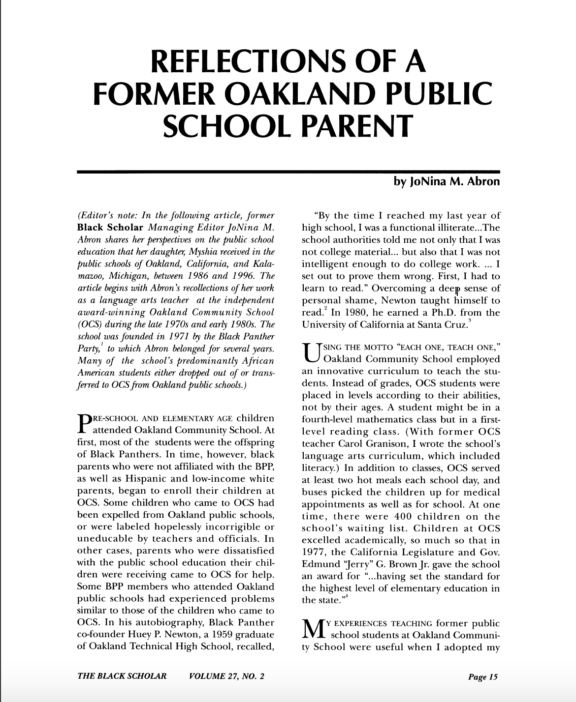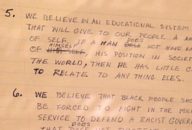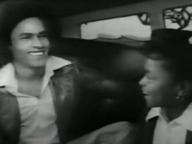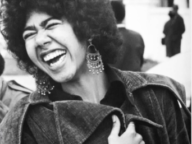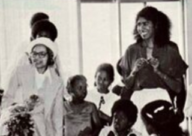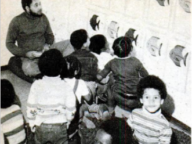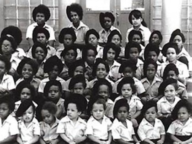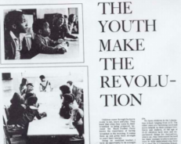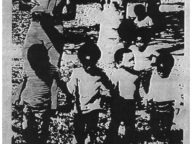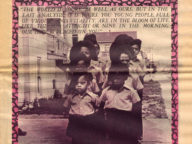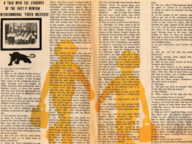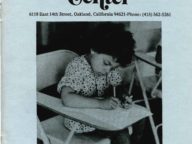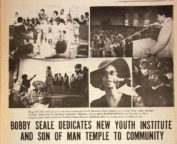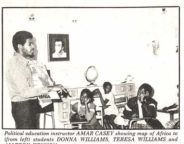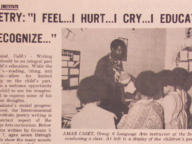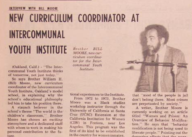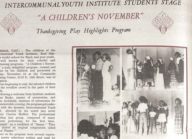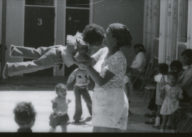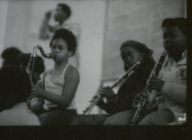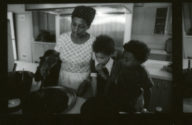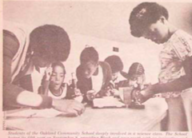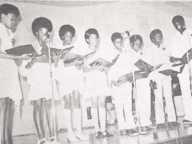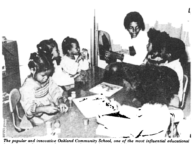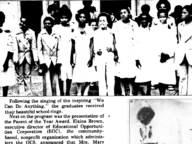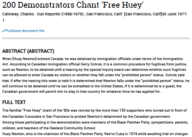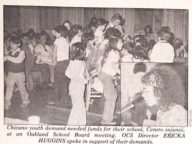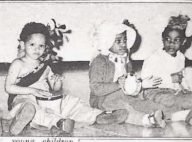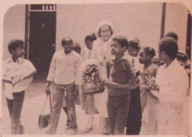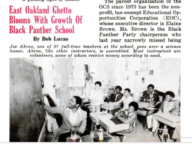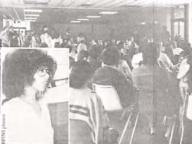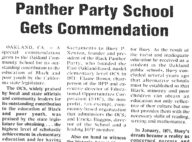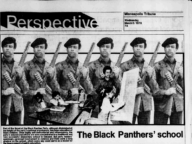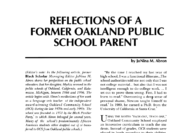In this essay in The Black Scholar, Jonina M. Abron draws upon her experience as a teacher at the Oakland Community School in order to analyze her adopted daughter Myshia’s struggles in the Oakland public school system.
Abron recounts how the OCS student body changed over time: originally accessible only to children of Black Panthers, it eventually accepted nonaffiliated Black, Hispanic, and low-income white children. Many families had originally enrolled in OUSD schools, Abron suggests, but found that their children were discriminated against and assumed to be unteachable, or received a low-quality education. Abron explains how the OCS motto, “Each One, Teach One,” exemplified the school’s pedagogy, which held teachers and students as equal and did away with traditional grades.
Though it started in private homes, the school gained a high level of recognition, with a long waiting list and an award from the Governor. Abron compares the OCS to the OUSD schools in which her daughter, several years later, enrolled. Having spent most of her life in foster care, Myshia struggled in school and was placed in special education and private tutoring. While at the OCS, she may have been placed with younger students in classes at her level, given her difficult upbringing, but in public school, she was expected to achieve the same results as other students her age who had a more stable educational and family history. According to Abron, being placed in these classes led Myshia to dislike school and act out. In response, teachers punished and suspended her, rather than finding the cause behind her behavior.
Myshia’s class was ethnically and racially diverse, but as a Black student, she found herself in the minority and experienced hostility from Asian classmates and teachers. Eventually, Myshia’s teacher asked her to not return to school, claiming that she was “uneducable,” a label that Abron notes was frequently attached to students who, after attending OCS, found they could thrive academically.
The story of the teacher’s dismissal of Myshia resonates with the reasons that motivated the Black Panther Party to develop its educational programs. Black children like Myshia and, earlier, Huey P Newton were written off by their teachers, expected to fail, and labeled uneducable by the OUSD, rather than being understood as products of a school system that failed its students. At the OCS, students were accommodated and learned to embrace their identity, rather than feel like outsiders.
Myshia was found to have severe sight impediments, which had affected her performance. If her past teachers had not assumed that, as a Black girl, her difficulties in school were innate, perhaps this could have been discovered much sooner. While Myshia eventually excelled academically, many students, written off by the school system, never get that chance. Abron notes that, in Oakland, 19% of Black students drop out of high school. The article is a powerful exploration of the failures of the OUSD, and of the promise upon which the OCS delivered.
